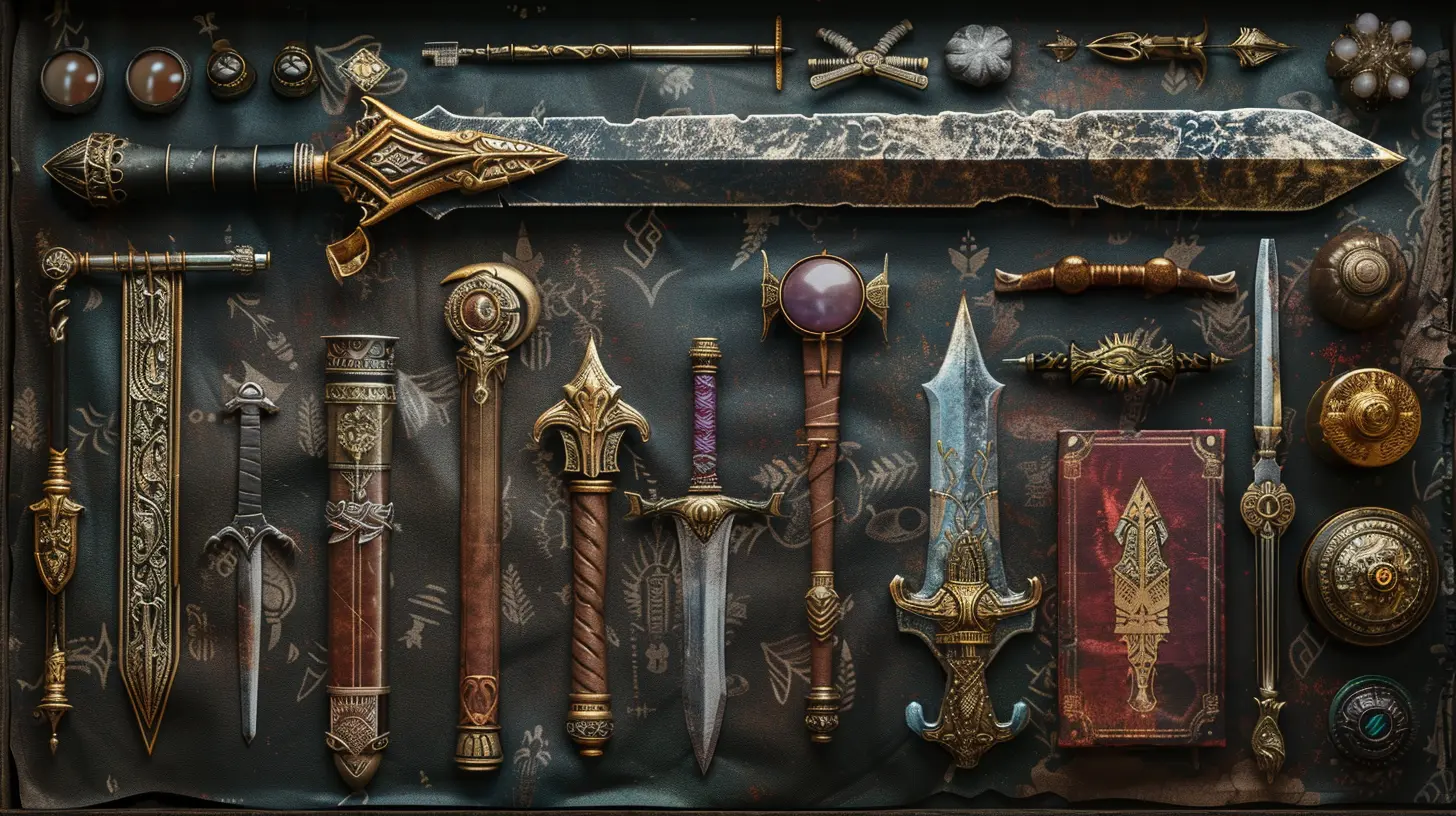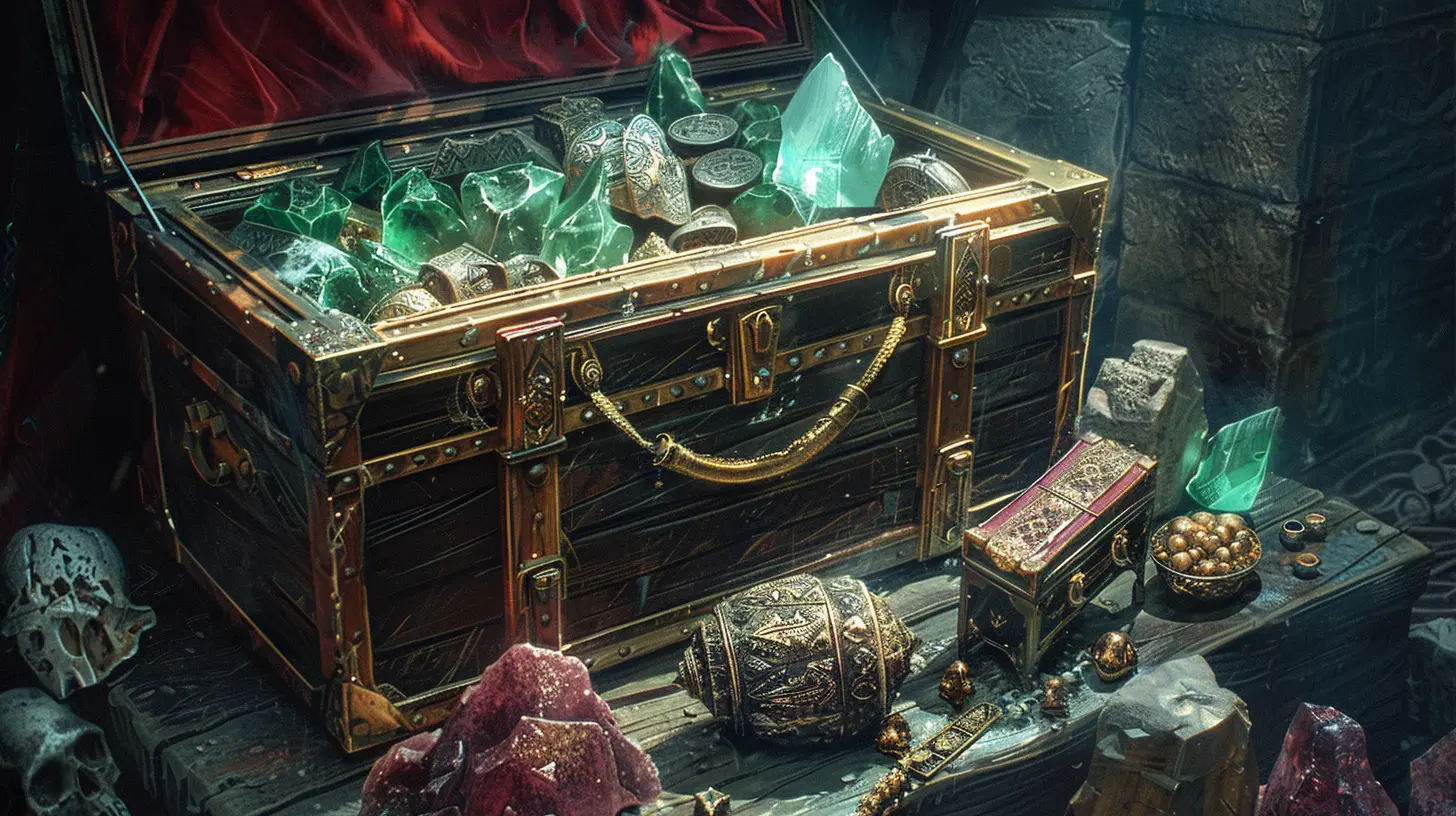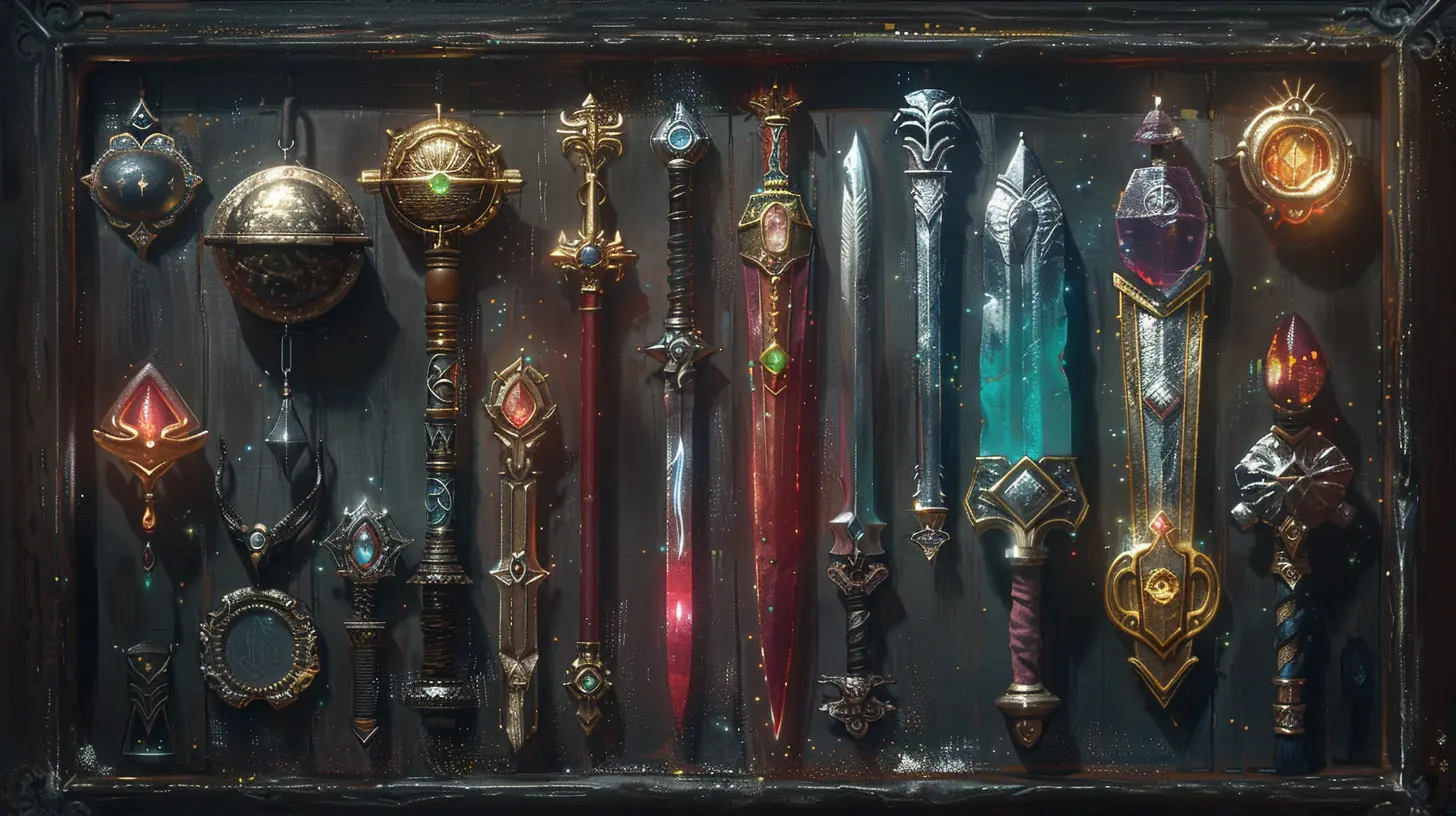15 March 2025
Alright, fellow gamers and lore junkies, let's talk about something we all secretly (or not-so-secretly) geek out over: legendary loot. Whether it's the shiny sword of a fallen king, a cursed ring that whispers dark secrets, or a chalice said to grant eternal life, these mythical items are the bread and butter of fantasy games. But here's the kicker: a lot of these so-called fictional treasures take their sparkle from real-world mythology. Yep, you heard me right—real myths!
So, buckle up, put on your imaginary adventurer’s hat, and let's dive into some legendary items that were inspired by myths of yore. Just remember, no touching the treasure—look, but don’t get cursed, okay? 
The Original Mythical Loot: Excalibur
You can’t talk legendary items without mentioning Excalibur, the OG sword of awesomeness. Arthurian legend paints this blade as the ultimate weapon. It’s said to cut through anything and shine with the radiance of a hundred lanterns. Some versions even claim it could blind your enemies with its dazzling light.But let’s get mythological for a second—Excalibur wasn’t just any sword. It was either gifted to King Arthur by the Lady of the Lake (a watery legend herself) or pulled from a stone that screamed, “Only the chosen one can touch this, suckers!” Basically, it’s the sword equivalent of being VIP.
And let’s face it, games LOVE Excalibur. It's been wielded by countless pixelated and polygonal heroes. From Final Fantasy to Assassin’s Creed, this sword’s résumé is longer than my Steam wishlist. Why? Because every hero needs a “look-at-me-I’m-boss” weapon, and nothing screams legendary like a sword that glows. 
Pandora’s Box: The Original Loot Crate
Before we had loot boxes in games, we had Pandora's Box—a mythological item that could ruin your day faster than a lag-spike in ranked multiplayer. According to Greek mythology, Zeus handed Pandora a "box" (more like a jar, but let’s not fight over pottery semantics) and told her, “Don’t open this, okay?” Naturally, she opened it. Spoiler: it unleashed all the world’s evils.Now, in gaming, Pandora’s Box has been reimagined more times than I’ve rage-quit a boss fight. It’s often depicted as a treasure chest or artifact that grants unimaginable power… usually at a cost. Because let’s be honest, nothing good ever comes from opening cursed containers.
Pro tip: If you find a mysterious chest in a dungeon glowing ominously, maybe just leave it alone. Or, you know, save your game first—because gaming logic dictates that opening cursed artifacts is both dangerous and mandatory.
The Philosopher’s Stone: No, Not THAT One
Before you start thinking of boy wizards and awkward train rides, let’s talk about the OG Philosopher’s Stone. This mythical item is said to have had the power to turn base metals into gold and grant immortality. Basically, it was like ancient alchemist cheat codes.Real-life alchemists were obsessed with finding it, spending their lives mixing weird potions and yelling “Eureka!” a lot. Spoiler alert: no one ever found it. (Or did they? cue ominous music)
In games, the Philosopher’s Stone often pops up as a crafting ingredient or a plot device. Titles like Fullmetal Alchemist: Brotherhood and Dragon Age have borrowed heavily from this myth. Because let’s face it, who doesn’t want a shiny rock that promises unlimited riches and eternal life? Well, unless it ALSO comes with a side of curse—then maybe pass. 
Thor’s Hammer: Mjolnir
Ah, Mjolnir. Part weapon, part tool, and 100% iconic. This Norse mythological beast of a weapon was wielded by Thor, the god of thunder. Legends say it could crush mountains, summon storms, and return to its master’s hand like a loyal boomerang. Oh, and only the worthy could lift it. (Sorry, Hulk.)In gaming, Mjolnir gets around more than a free-to-play mobile app. From God of War to the Halo series (fun fact: the armor in Halo is actually called Mjolnir), this hammer has been smashing pixels and taking names for years. And why not? It’s the perfect combination of brute force and godly pizzazz.
Let’s be real: if you’re not imagining yourself wielding a mythical lightning hammer every time you pick up a generic in-game mace, you’re gaming wrong.
The Holy Grail: More Than a Fancy Cup
The Holy Grail isn’t just some overpriced chalice from the King Arthur legends. It’s allegedly the cup Jesus used at the last supper, and in medieval myths, it’s said to grant eternal life or incredible power to anyone worthy of finding it.Sounds cool, right? Well, in most stories, it’s guarded by impossible riddles, deadly traps, and knights who really don’t want you to borrow it. Think of it as the ultimate game of “The Floor Is Lava,” but with eternal consequences.
Games like Indiana Jones and the Fate of Atlantis and Fate/Stay Night feature their own takes on the Grail. Sometimes it grants massive buffs—other times, it’s a recipe for disaster. Either way, it’s proof that not all epic loot comes in gold and jewels. Sometimes it’s about the story behind the sparkle.
The Spear of Destiny: Poking Through History
The Spear of Destiny, or the Holy Lance, is said to have been the weapon that pierced the side of Jesus during the crucifixion. In legend, it grants its wielder immense power and victory in battle. Naturally, people throughout history have fought over it like it’s an epic drop at a raid boss.Games like Wolfenstein 3D and Clive Barker’s Jericho turned the Spear into the centerpiece of their plots, often tying it to supernatural horrors and world-ending stakes. Because nothing says “high stakes” like poking a prophecy with a stick, right?
Achilles’ Armor: Legendary But With A Catch
Let’s talk Achilles’ Armor. This bad boy was created by the gods themselves, made from magical, rare materials (probably the ancient version of mithril) and practically screamed “legendary loot.” It was supposedly so strong that it could withstand anything… unless you aimed for the heel, of course.Games often reinterpret Achilles’ gear as indestructible armor sets with a glaring weak spot (because balance, duh). Whether it’s in Assassin’s Creed Odyssey or any RPG worth its weight in side quests, this mythological armor is bound to make an appearance—because who doesn’t want to look OP while shielding themselves from arrows?
The Cursed Ring of Andvari: The Original RNG Troll
If you’ve had enough of rings that mess with your life choices (cough One Ring cough), let’s talk about the Ring of Andvari. According to Norse lore, this bad boy was cursed by its owner to bring misfortune to anyone who possessed it. In short, it’s like a bad RNG roll that sticks forever.In games, this idea of cursed loot remains strong. You grab what looks like an epic piece of gear, only to realize it’s draining your health or attracting random elite mobs. Because hey, what’s a legendary without a little drama, right?
Why Mythical Loot Will Always Be Cool
So, why do game devs keep raiding ancient legends for item ideas? Simple. Myths are the original cinematic universes. They’re packed with drama, larger-than-life heroes, and artifacts dripping with story potential. And let's be real, slapping a historical or mythological name on an item instantly makes it cooler. Would you rather wield "Sword #4532" or "Excalibur, Blade of the Eternal King"? Yeah, I thought so.Plus, these legendary items aren’t just shiny distractions—they’re symbols. They represent power, hope, and sometimes, the price of ambition (cough Pandora’s Box cough). That’s what makes them perfect for gaming: they’re not just loot, they’re storytelling devices wrapped in shiny pixels.
Ready to Raid Some Myths?
So, the next time you’re playing your favorite RPG and come across a glowing chest, take a second to appreciate the mythological inspiration behind it. Sure, it might just be a collection of polygons and code, but it’s also a callback to stories that have been around for centuries. And honestly, isn’t that just... kinda epic?Just, uh, don’t open anything labeled “Pandora’s Box.” Trust me on this one.







Jace Howard
Unleash your imagination with 'Fabled Treasures'! Dive into a world where myth meets magic, and legendary items pave the path for epic quests. Adventure awaits—embrace the extraordinary!
March 31, 2025 at 3:19 PM